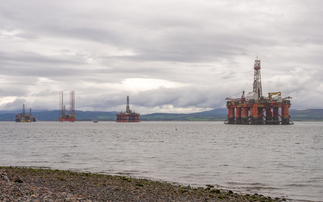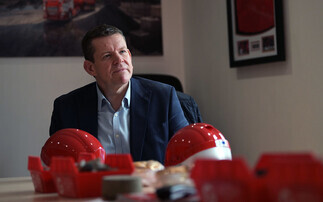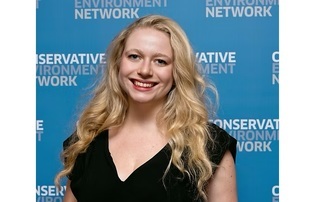The latest crucial UN Climate Summit kicked off yesterday, but trying to predict the outcome is a mug's game
Diplomacy is the art of averting surprises. The carefully choreographed world of brush-bys, back channels, and pre-agreed landing zones is predicated on the universal human desire to avoid being blind-sided, to have envisaged every scenario, to have a contingency plan in place for every outcome. Game theory is a fancy term for not wanting to be embarrassed.
But how, then, can diplomacy prosper in the age of the unexpected? In an era when racist, sexual assault-bragging, 50 to 1 long shots with zero political experience make it to the Oval Office, when men whose careers are defined by an insouciant disregard for the truth can head up the Foreign Office, and when authoritarian rulers have weaponised social media to ensure public life is conducted against an ever more disorientating backdrop of propaganda, half-truths, and misinformation. How can political and business leaders plan for the future when the surprises keep coming thick and fast?
This is a live question as the crucial COP24 Summit gets underway. The general consensus seems to be that a combination of relatively low expectation, Chinese and European arm-twisting, and diplomatic shoe-leather will deliver a solid if unspectacular meeting. The expectation is Katowice should deliver its primary goal of a new Rulebook for the Paris Agreement, served with a side-order of net zero emissions and deeper decarbonisation rhetoric from those countries who care about such things. There is a huge amount of technical work to get through - even more than there was heading into the Paris Summit - but the scuttlebutt is that officials are relatively confident that the landing zones are in place for agreement on most of the difficult areas. If industrialised nations are willing to follow the World Bank's lead and open their climate finance cheque books a little further then an agreement becomes even more likely.
It is an encouraging narrative and it is not without foundation, even if the Polish hosts have stubbornly insisted that their ambitions do not extend much beyond finalising the Rulebook and finessing some warm words for the coal industry into proposals for a global 'just transition' - a topic of such huge importance it surely deserves more focus and less politicking from governments of all stripes. The highly symbolic isolation at last weekend's G20 Summit as a G19 once again formed to reassert its commitment to the "irreversible" Paris Agreement provided further evidence that all but one of the world's largest economies remain wedded to bold and ambitious climate action. There are reasons for the green economy to be optimistic going into this Summit - an optimism I broadly share.
However, that optimism was still dented over the weekend.
The sight of Saudi leader Mohammad bin Salman and Russian President Vladimir Putin laughing and joking on the side of the G20 Summit in Buenos Aries provided a very real crystallisation of how an autocratic pollutocracy of petrostates regards itself as above the law. Democrats and liberals around the world filled in their own captions for the footage, inevitably imagining the two rulers sharing a brazen laugh about whose turn it is this week to become the subject of speculation about extrajudicial murderous plots.
It is hard to take anything the Trump administration says too seriously, especially when the summit culminated in 19 countries reasserting their commitment to the Paris Agreement and one country voicing its lonely opposition. But there is surely some truth to the comments attributed to a White House source by AFP. There are signs the consensus in support of the accord is fraying. Russia, Turkey, and Saudi are yet to ratify the agreement. The ruling Australian Liberal Party continues to challenge the GOP for the title of world's most climate sceptic political organisation. And the election victory of Jair Bolsonaro in Brazil puts one of the world's most powerful emerging economies and one of the world's largest potential sources of greenhouse gas emissions in the hands of a far-right, climate change denying, authoritarian.
Meanwhile, the man who has styled himself as the great progressive defender of the Paris Agreement and the multi-lateral rules based world order that delivered it, Emmanuel Macron, returned home to plummeting approval ratings and the worst civil unrest in over a decade.
The gilet jaunes protests may have morphed into a wider kick back against the failures of globalisation and the reforms pursued by successive governments. But the spark provided by Macron's cloth-eared decision to impose new green taxes on fuel without clearly linking them to tax cuts or increased spending elsewhere has been noticed by political leaders around the world. In the UK, Treasury Ministers will be watching the riots and thinking that the decision to freeze fuel duty was a wide one, regardless of how loudly environmentalists point that UK transport emissions are rising again.
This backdrop does little to boost the prospects of a genuinely ambitious outcome at the Katowice Summit. The most likely result remains a working agreement on the technical Rulebook and a deferment of the big battle over country's willingness to adopt more ambitious decarbonisation strategies until 2020 and confirmation of whether or not President Trump is a one-term embarrassment or a voter-endorsed beachhead for a new era of fossil fuelled economic nationalism. However, there are also credible reasons to fear that at some point between now and then, perhaps even as early as this week, the loose axis of authoritarian petrostates will mount a co-ordinated push to dilute the accord that threatens both their revenue streams and their broader world view.
Even if Trump is defeated, the grouping of countries that stand to lose most from global decarbonisation and have done least to prepare for it will still remain as a major barrier to the Paris Agreement's net zero emission vision ever being realised.
How then should businesses respond to such a broad spectrum of plausible scenarios? An array that stretches from the collapse of civilisation that Sir David Attenborough rightly warned of today, through to a clean tech enabled, future of peace and prosperity of which the most utopian of science fiction writers would be proud. It is a range of outcomes that is further complicated by what Rebecca Willis accurately described on Twitter yesterday as the climate movement's tendency to both wallow in the latest depressing climate projections and overstate the reach of encouraging green business or policy developments - a dichotomy that will be on full display in a fortnight's time if the Katowice Summit ends in either modest success or contentious failure.
How then should businesses respond to these complicated selection of known unknowns? The only answer is to continue to pay close attention to the political and policy developments that come out of Katowice, but also ensure corporate and investment strategies are informed by macrotrends more than any specific policies. It remains critically important to understand that atmospheric physics and clean energy economics care little for what is going on in Poland's coal country this month. Ambitious action from governments definitely helps, but companies still need to plan for escalating climate risks regardless, and investors need to recognise that clean technologies will outcompete dirty incumbents sooner rather than later whatever happens. Equally, a new generation of consumers that is hyper-connected and growing up in a climate changed world will eventually demand corporate and business leaders deliver on their stated decarbonisation aspirations.
Consequently, truly ambitious corporate climate strategies become a way of minimising the risk of surprises and ensuring businesses are well placed under pretty much any future scenario, be it an all-out assault on the Paris Agreement, a revival of the commitment to global climate action, or, most likely, a fudged accord somewhere in between. At the same time, they provide the added bonus of strengthening the hand of those countries and governments who recognise 2020 will provide perhaps the biggest test yet of the post war world order, and perhaps even the Enlightenment itself. The hope has to be that a solid fortnight of progress in Katowice can pave the way for the full enactment of the Paris Agreement in 2020, just as governments around the world finally start to engineer some welcome surprises for a change.
This article first appeared at part of BusinessGreen's Overnight Briefing email for subscribers










